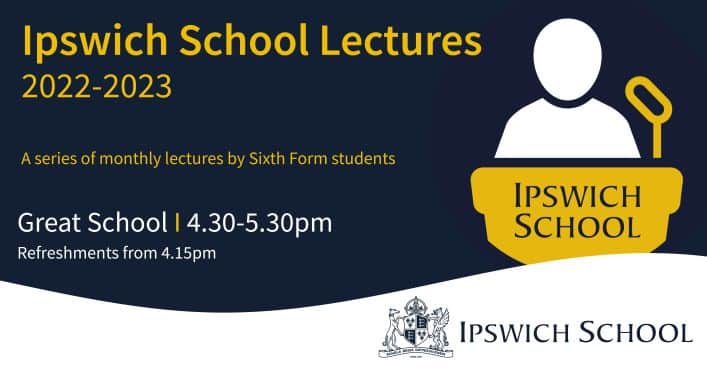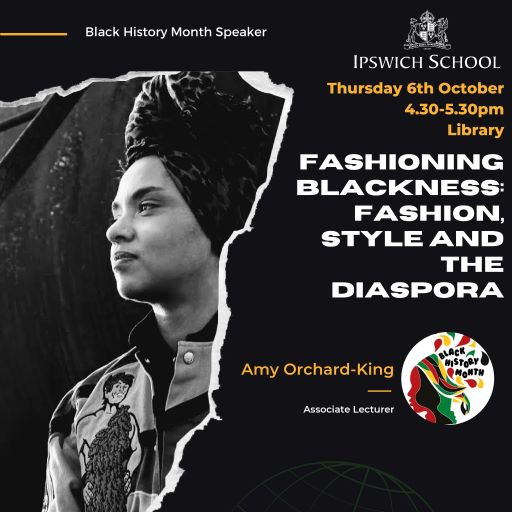
Past lectures
How can psychology contribute to the understanding of immoral behaviour and decisions within the justice system?
May: Ella
Law and psychology both seek to examine human behaviour, one to understand it and one to regulate it; Gabriella will explore the relationship between the two. This involves looking at the psychology of morality (or moral psychology) which studies how we make decisions, rather than exploring what moral decisions we should make. It encompasses the study of moral judgement, moral reasoning, moral character, and many related subjects at the intersection of philosophy and psychology. With a change in evidence presented in courts to be more ‘scientifically’ focused, Gabriella will also include some criminal psychology to look at how the justice system interprets a psychologist’s understanding of what may have led the convict to commit the crime that they did.
Artificial Intelligence; will it be our salvation or damnation?
September: Daniel
Daniel discussed artificial intelligence, its current status and how the field will develop in the future in this lecture. He highlighted the dangers AI could potentially present, such as it replacing industries, rewriting itself and being weaponised, while also discussing the untethered possibilities of AI including a solution to climate change, world hunger and exponential technological development. He explored proposed solutions to ensure we make the objectives of AI fundamentally, ethically aligned with ours to prevent it becoming dangerous, keeping AI a revolutionary tool for good.

Fashioning Blackness: Fashion, Style and the Diaspora
October: Amy Orchard-Black
Amy Orchard-King’s background is in textile design and trend forecasting and she is currently an Associate Lecturer across the University of the Arts London campuses, and a postgrad student at London College of Fashion. Amy’s specialist area of research is Fashion Histories and Cultures, within which she focuses on Black contributions to fashion and the work of Black fashion practitioners.
The importance of music and the benefits it brings to society and individuals
October: Charlotte
Charlotte will explore the importance of music in our education system and how music influences our lives in positive ways both psychologically and physically. For instance, music aids cognitive development, for example it leads to greater attention span, increased geometrical skills and a better memory. It stimulates areas of the brain that are not often activated all at once. Music reduces stress, insomnia, and depression and can assist people with language delay or speech impairment through the use of music therapy. Charlotte believes that all these benefits mean that music deserves to be given a higher priority in education, and will examine this idea more fully in her lecture.
The Madwoman in the Attic: fact or fiction?
16 November: Dylan
Dylan will explore the feminist theory of the madwoman and how it has evolved throughout literature. It was a term coined by Sandra Gilbert and Susan Gubar in the late 70s which describes the use of the term “hysteria” and its highly misogynist history as a pseudo-scientific label forcibly exerted onto women who threatened the status quo, furthering traditional ideas that belittled women, arguing that they were mentally inferior or weaker, and needed dominant men to practise full control over them. I’d focus on Gothic literature such as Brontë’s ‘Jane Eyre’, Gilman’s ‘The Yellow Wallpaper’, Simone de Beauvoir’s ideas, and also look back on fairy tales as a key to understanding the condition of women.
Do we have the power to create a perfect economy?
14 December: Zhichao & Hugh
A perfect economy should have strong economic growth, high living standards for its population, resilience to shocks and equity within its population .Although we have witnessed many ‘Economic Miracles’ like China and the most powerful economy to exist(USA). None of them achieved all the objectives above, especially ‘equity’. Hence their economic model has flaws and strengths. Therefore is it realistic to integrate the success of these models while considering the ideological differences to model a perfect economy. This topic is important to finding solutions for many current issues such as poverty for all countries at different stages of development. Moreover it improves the efficiency of the allocation of resources thus improving our living standard and helps to meet climate change targets.
Is beauty a blessing or a curse?
25 January: Rowan
The focus of Rowan’s lecture will be about how pretty privilege, or lack thereof, can affect women’s careers and progression in the workplace. Pretty privilege is a complex construct, which can be used as a misogynist tool of reducing women to their bodies. This can be examined through the differences in the male and female gaze and how detrimental this can be on women’s careers, when they are scrutinised for their appearance.
To what extent is neuroplasticity a beneficial nature of the human brain?
15 February: Jamie
Neuroplasticity means the ability of neural networks in the brain to change through growth and reorganisation. It is the most fascinating topic in neuroscience as brain plasticity affects how we learn, how memory forms, as well as how the brain can repair itself through rewiring neural connections after being damaged. Jamie will explore the principles and mechanisms of neuroplasticity, particularly about how our brain modifies itself through biological processes to adapt new information. How the brain develops rapidly during critical periods and why it is important and the brain repairs itself after a stroke. Jamie will also consider the downside of neuroplasticity: what if it goes wrong, e.g. overgrowth of a particular region in the brain can impair the growth of another region, resulting in Autism, and how stress can cause damaging changes to the brain.

